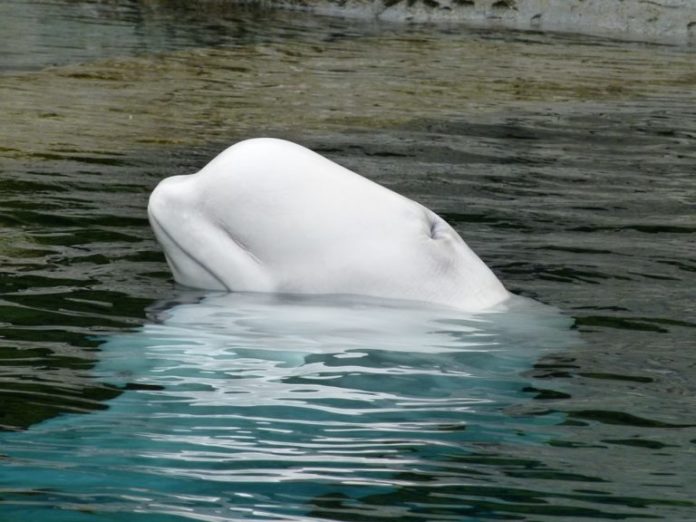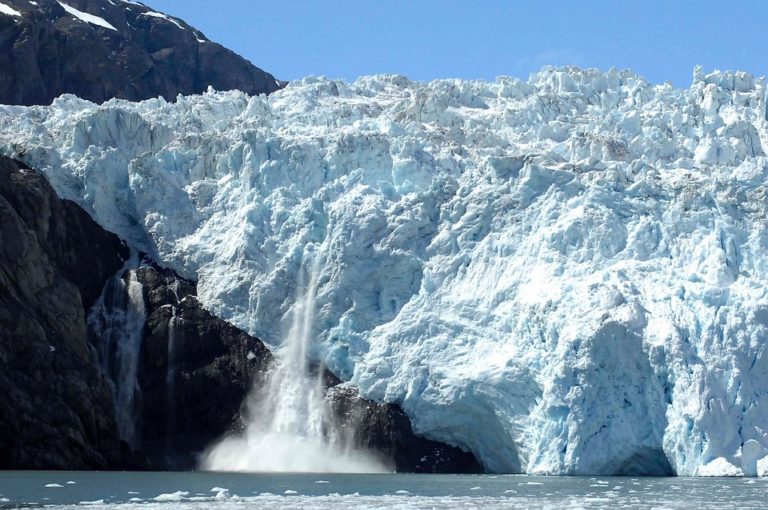
Over 300,000 cubic feet of methane has been released every day for three months.
An eight inch pipeline in Alaska is currently releasing around 310,000 cubic feet of methane into the ocean every day, and reports say that it could be months until it is stopped. The pipeline located in Alaska’s Cook Inlet has been actively releasing methane daily for the past three months, and there could be a wait until May before anyone shuts it down. Hilcorp Alaska’s pipeline ruptured back in December, causing it to begin releasing an enormous amount of methane into the ocean. Despite the vast quantities, the leak was not reported to the US Pipeline and Hazardous Materials Safety Administration until frothing and bubbling at the surface of the water was spotted by a helicopter pilot on February 7. EcoWatch reported, “PHMSA said that the natural gas discharge could pose a risk to public safety, the environment and marine mammals and has given Hilcorp until May 1 to permanently repair the line or shut it down.”
Predictions have already been made which state that a further 16 million gallons of the environmentally-deleterious gas could be released into the ocean by May. Several conservation groups have already submitted a letter to the Trump administration for an immediate shutdown of the pipe. Miyoko Sakashita, oceans program director for the Center for Biological Diversity, said,
“This dangerous leak could stop immediately if regulators did their job and shut down this rickety old pipeline. We’re disgusted with the Trump administration’s lack of concern about this ongoing disaster. Every day the leak continues, this pipeline spews more pollution into Cook Inlet and threatens endangered belugas and other wildlife.”
CBD and other groups have warned that a leak of methane of this size could create a hypoxic, or low-oxygen, zone, along with many other dangers, which are likely to pose an “imminent threat” to endangered beluga whales, other wildlife, and the delicate ecosystem. Some of the methane gas in the ocean diffuses into the water, which is then metabolised by bacteria using oxygen. This means that the water in the area where this takes place has a lower oxygen content as a consequence, along with an increased quantity of carbon dioxide which raises the acidity level of the sea. Chris Sabine, a chemical oceanographer with the National Oceanic and Atmospheric Administration, cited in InsideClimate News, “Those high concentrations of methane can have direct impacts on any organisms that might come in contact with water that’s supersaturated with methane.”
Due to current heavy ice cover and rough seas, the crews have been prevented from investigating exactly where the leak is coming from, as well as its direct impact on the ecosystem. Scientists worry this could be the making of yet another oil and gas industry catastrophe. Sabine noted, “It’s like a perfect storm of conditions that would encourage or enhance the diffusion of the methane into the waters. And that’s a bad thing for the water and for the organisms that live in it.”
InsideClimate News reported that Hilcorp Alaska states that the pipeline cannot be shut off “without risking further environmental damage, and it won’t be able to begin to fix it until the ice melts in late March or April. Ice in the inlet isn’t a solid sheet, but is in large, floating chunks that are constantly moving and changing, in part due to the tides in Cook Inlet, which are among the highest in the world. The tides can be as high as 35 feet, making it too risky to send divers into the water. The delay raises concerns about long-term repercussions.” The Center for Biological Diversity wrote that,
“This is the third time this pipeline has sprung a leak in recent years. The two other leaks were reported in 2014. The pipeline was built in 1965, and there are serious questions about the pipeline’s integrity given its age and Cook Inlet’s strong tides and cold waters.”
What are your thoughts? Please comment below and share this news!
This article (US Government Has Been Allowing A Pipeline To Release Methane Into The Ocean For Months) is free and open source. You have permission to republish this article under a Creative Commons license with attribution to the author and TrueActivist.com





